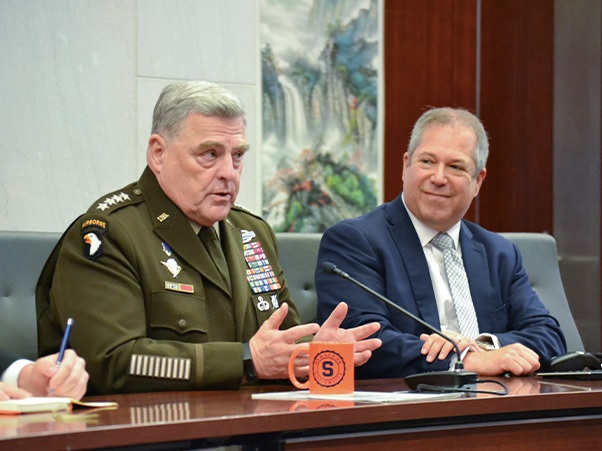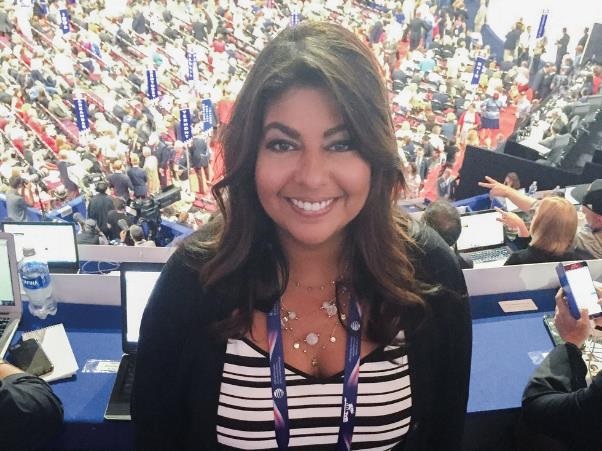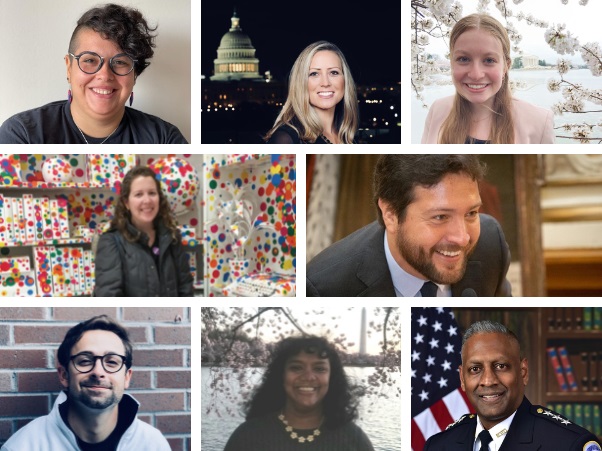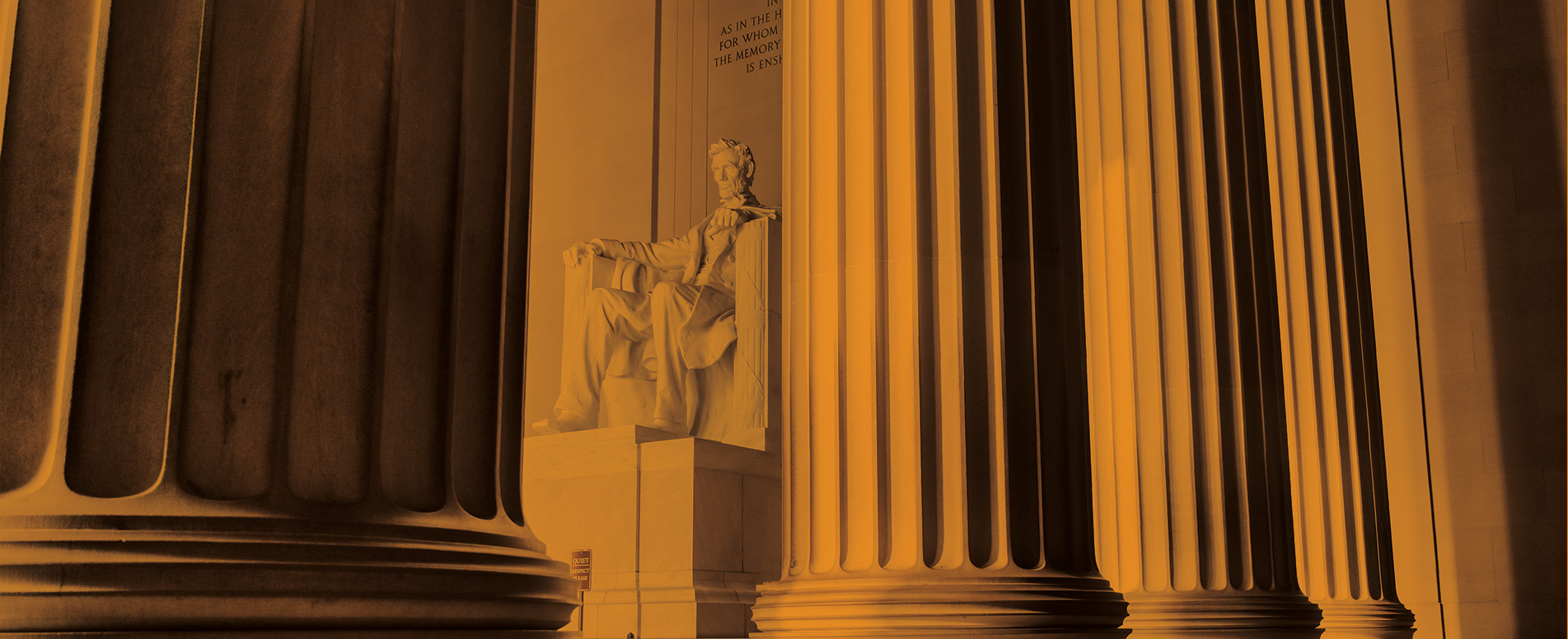
Maxwell Partners with Newhouse to Launch Institute for Democracy, Journalism and Citizenship in DC
December 14, 2022
The Maxwell and Newhouse schools have partnered to launch the Syracuse University Institute for Democracy, Journalism and Citizenship in Washington, D.C.
Americans on opposite sides of the political divide may not agree on anything other than the divide itself. And what may have at one time felt like a crack now feels like a chasm.
According to a survey conducted by the Pew Research Center this past summer, 72 percent of Republicans and 64 percent of Democrats consider members of the other party to be more dishonest than Americans generally.
Six years ago, the numbers were 42 and 45 percent, respectively.
The erosion of civil discourse, democratic engagement and trust in government and journalism, alongside the proliferation of misinformation, threatens our democracy and the institutions on which it relies.
Syracuse University can and should play a role in navigating the country through this perilous time in its history. That’s part of the vision behind the new Syracuse University Institute for Democracy, Journalism and Citizenship, a joint effort of the Maxwell School of Citizenship and Public Affairs and the S.I. Newhouse School of Public Communications.
Based in Washington, D.C., the institute will promote nonpartisan, evidence-based research and dialogue in the public interest and support the work of faculty and students in the nerve center of American democracy.
“At this point in the history of democracy, it is critical that our nation’s research universities lead dialogues that bring people together. We are educating the next generation of engaged citizens and producing knowledge that enables individuals, a free press and government institutions to work together in the public interest,” says Vice Chancellor and Provost Gretchen Ritter.
“As a scholar and educator who has focused on the U.S. Constitution, I firmly believe that opportunities to study and work in our nation’s capital provide an essential experience that shapes faculty engagement with key issues and students’ views of their purpose and career path.”
At the Forefront
A bronze statue of Abraham Lincoln sits in the Maxwell School courtyard, in a contemplative posture steeped in melancholy, suggesting the heavy burden of a divided nation.

“It makes an indelible impression on all who enter Maxwell aspiring to a life of service and impact in the public interest, and it serves as a timely reminder of the imperative for civically engaged citizens to work together for justice and equity,” says Dean David M. Van Slyke.
“It embodies the mission and ethos that drives the research and teaching at Maxwell.”
The statue gazes down the hill toward the Newhouse School, which sits at an entryway to Syracuse University, with the words of the First Amendment emblazoned on its exterior. The school, which began as the Department of Journalism in 1919, has always been both a champion and a defender of journalism.

“As a school that trains generations of future journalists, Newhouse is compelled to be at the forefront of these issues,” says Newhouse Dean Mark J. Lodato. “We are obligated to tackle the challenges facing communications and journalism. Frankly, I think we would be remiss to sit idly by as our country struggles with this loss of civil discourse and distrust in journalism. With the combined strength of the Newhouse and Maxwell schools, this institute will provide paths to repair what is broken while giving our students a valuable experience in the process.”
Indeed, due to the excellence of both the Newhouse and Maxwell schools, important scholarship in the areas of journalism and democracy is a hallmark of the University. Events like Newhouse’s Social Media and Democracy colloquium and Maxwell’s State of Democracy Lecture Series provide forums for the exploration of these issues.
Publications like “Democracy in the Disinformation Age,” co-authored by Jon Glass and Regina Luttrell from Newhouse with Lu Xiao from the School of Information Studies, examine social media’s impact on American politics. Luttrell and co-investigator Jason Davis are now working on a theoretical framework for the creation and testing of AI algorithms that can identify manipulated media.
At Maxwell, Shana Kushner Gadarian, professor and chair of political science and Merle Goldberg Fabian Professor of Excellence in Citizenship and Critical Thinking, received a prestigious Carnegie Fellowship in 2021 for her work on the impact of partisanship on attitudes and health behaviors related to COVID-19. In her political science courses, Gadarian strives to help her students understand democratic citizenship as the responsibility to stay informed and participate in civil life.
Associate Professor of Public Administration and International Affairs Catherine Herrold, named a Fulbright Scholar earlier this year, leaves for Serbia in the spring semester to study how the work of volunteers in local philanthropic entities leads to social change and to advance civic dialogue and engagement.
An Expanded Presence

Syracuse University already has a strong presence in the Washington area—it is home to tens of thousands of alumni, donors and others with strong connections. Hundreds of students, including those in the joint Newhouse-Maxwell public diplomacy and global communications master’s degree program, study and intern there every year.
Maxwell maintains offices and year-round classroom space at the Center for Strategic and International Studies (CSIS), where the school hosts undergraduate students for a semester of courses and internships in the nation’s capital and offers an executive M.A. in international relations in partnership with the think tank—the only program of its kind in the U.S.
Graduate students in Newhouse’s broadcast and digital journalism program spend a summer reporting from the capital for local news outlets. This fall, a new Newhouse D.C. semester program sent undergraduates to Washington as well.
The Institute for Democracy, Journalism and Citizenship will expand and formalize this robust presence, helping to advance thought leadership and the student experience.
The institute aims to strengthen trust in journalism and democracy to reduce political polarization and promote civil discourse and engaged citizenship. It will be characterized by five pillars:
- SCHOLARLY RESEARCH: Faculty and students will conduct nonpartisan, evidence-based research that informs dialogue and shapes decision making around networks and institutions, parties, voting, speech, journalism, truth and fact.
- APPLIED RESEARCH: Applied research projects as well as briefs and white papers will be distributed broadly through university, commercial and nonprofit channels, to better inform political leaders and citizens of challenges and possible solutions. A broad range of diverse perspectives will be included, and opportunities for collaboration with organizations whose missions align with the institute’s will be explored.
- FACILITATION AND CONVENING: To place Syracuse University in a public-facing thought leadership position, regular forums—such as symposia, conferences, speaker series and media programming—will be developed. These events will promote exchange, discussion and understanding of research conducted at the institute and its real-world applications. The institute will also leverage other Syracuse University intellectual assets, such as the Institute for Veterans and Military Families, the Burton Blatt Institute and the College of Law.
- EXPERIENTIAL LEARNING: This important component of the institute will provide students with crucial hands-on experiences in Washington. Newhouse students, under faculty direction, will participate in collaborative, project-based work with some of the nation’s premier news providers, while others will intern with media outlets and agencies. Maxwell students, who already intern with more than 100 D.C.-based organizations each year, will have new opportunities for engagement with organizations whose missions are at the intersection of journalism and democracy.
- TEACHING AND INSTRUCTION: Students from the Newhouse and Maxwell schools studying and interning in Washington will engage with the institute’s scholars, including full-time faculty and adjuncts.
“This new institute is a natural extension of work already going on throughout the University on issues and research areas of national and international impact,” Van Slyke says. “As a nationally ranked R1 research university, Syracuse University and its faculty will benefit enormously from a collaborative hub in our nation’s capital.”
This fall, the Newhouse School announced the hiring of Margaret Talev as the Kramer Director of the Syracuse University Democracy, Journalism and Citizenship Institute. Talev will join the University in January, following a 30-year career covering American politics and the White House, most recently as the managing editor for politics at Axios and a CNN political analyst.
The institute’s leadership team will also include Beverly Kirk, who was appointed director of Newhouse’s Washington programs in August, and two new faculty members—one based in Syracuse and the other in Washington—who will be associated with the institute and also be part of the University’s Citizenship and Democratic Institutions research cluster. Other institute faculty will include a research director from the Maxwell School.
In fall 2023, the institute will host the inaugural Symposium on Advancing Civil Discourse. In addition, a faculty fellows program, bringing in postdoctoral and visiting researchers, will be launched, and funding for faculty research via seed grants will begin. Specific research and programs will focus on areas such as ethics, civil discourse and diversification of the journalism workforce.
Moving Forward
The launch of the institute has been made possible, in part, by the generosity of two alumni: Cathy L. Daicoff ’79 M.P.A. and Larry Kramer ’72 B.A. (PSc).

Daicoff, a longtime member and vice chair of the Maxwell School Advisory Board who retired as a managing director at Standard & Poor’s Ratings Services, has established the Marguerite Fisher Faculty Research Fund with a gift and endowment totaling $1.2 million. Named for the first woman to have been promoted to full professor at Maxwell, the fund will support faculty engagement with the institute as well as faculty and student research.
“We take great leaps forward with the partnership of these two schools at a time when the nation needs it,” says Daicoff. “The Maxwell School and Newhouse are well-positioned to lead research and advance discourse about citizenship, the constitution and the media.”

Kramer, former president and publisher of USA Today, is supporting the institute director position held by Margaret Talev with a $1 million endowment. He says the significance of establishing the institute is clear.
“This country must restore the ability of people with differing opinions to respectfully debate these important issues. We must revive respect for truth and trust,” says Kramer, who also majored in magazine journalism in the Newhouse School and serves on the Syracuse University Board of Trustees and the Newhouse Advisory Board.
Syracuse University is the right institution to lead this charge, Kramer says. “The combination of two powerhouse schools—Newhouse and Maxwell—puts us in a perfect position to launch this new institute and to host the debate over the biggest problems our democracy is facing today. Trust in our governing institutions, our political system and the media is at an all-time low. By raising the level of respectful debate and discussion, we will seek to find constructive solutions to restoring that trust.”
Van Slyke agrees. “The legacy of Maxwell and Newhouse alumni across a range of media who are making an impact on the national and international stage is a testament to the natural synergies between our two schools and the commitment that a firm grounding in citizenship, public affairs, critical thinking and the ability to contextualize complex assignments is vital to any type of reporting and analysis,” he says.
Ultimately, the institute will create new knowledge, foster a more informed and engaged citizenry and better equip students for success in media, communications, policy, governance and citizenship. Says Lodato, “I’m proud to be a part of an institution that is prepared to tackle these challenges head-on.”
By Wendy S. Loughlin with additional reporting by Lenore Friend
Related Story: Institute for Democracy, Journalism and Citizenship Tackles a ‘Daunting Problem’
Published in the Fall 2022 issue of the Maxwell Perspective
Related News
Research

Mar 5, 2025
School News
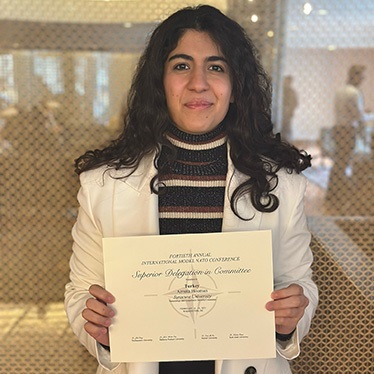
Mar 4, 2025
Commentary

Mar 3, 2025
School News

Feb 27, 2025
